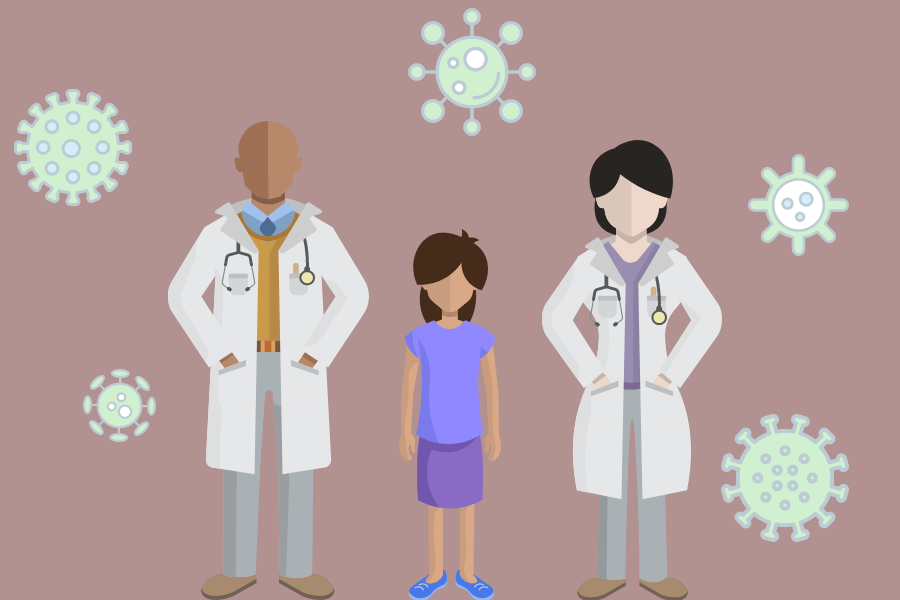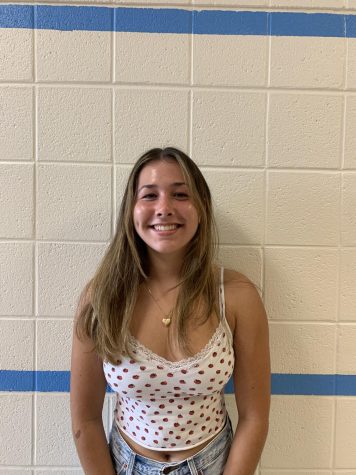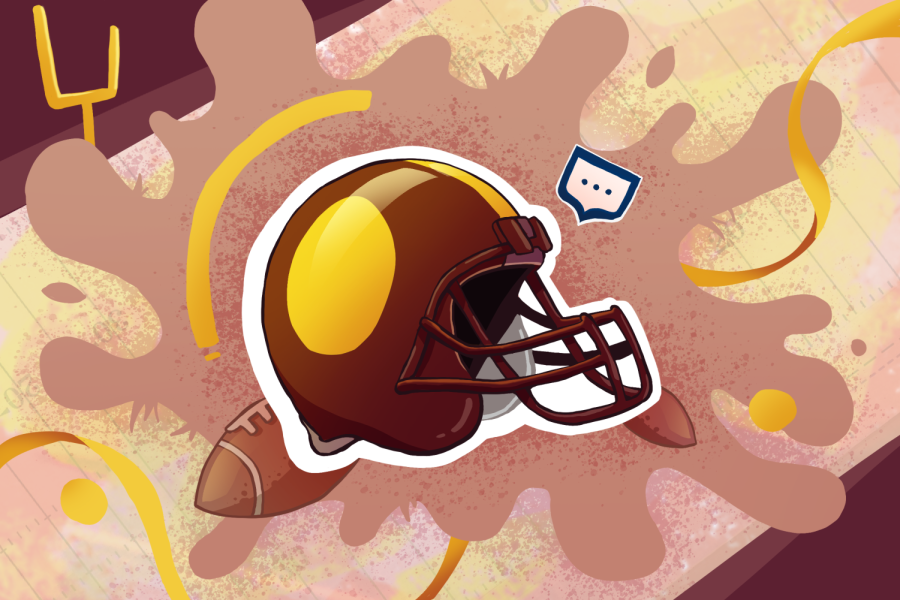How I’ve coped with living as a child of two doctors during the pandemic
This has been the reality of living with parents who are doctors during the pandemic. Until vaccinations became available, anxiety surrounding contracting coronavirus consumed me.
May 22, 2021
At 5:30 p.m. — right on cue — I hear the crank of the garage door open from my bedroom; my parents are home from work. Before March of 2020, I would run downstairs and embrace each of them in a hug after a long day at school.
Instead, I remain in my bedroom, yelling “Hi!” through closed doors. After a painstaking 45 minutes of disinfecting every possession that went to work with them, my mom and dad cautiously hug me with exhausted smiles and near-permanent mask marks etched on their faces.
Even as the COVID-19 pandemic persisted in the spring and summer of 2020, my parents continued to see patients, performing close contact surgery at their respective dermatology and oral surgery practices. The risks they exposed themselves to during the pandemic caused me an immense amount of stress prior to the availability of vaccines.
Until my parents received their vaccinations in mid-January, I constantly worried that they would contract the coronavirus; I was distressed to the point where my fears became irrational and disruptive to my daily life. I spent countless nights lying awake in bed, sinking into deep states of panic as my mind ran wild with the possibility that my family would become infected. Days were no better since I couldn’t help but think that each time they left for work could be their last.
My fears only intensified when one of my dad’s colleagues became one of the many healthcare workers who passed away from complications of the coronavirus. After his passing, I became hyper-alert to potential coronavirus symptoms around me, flinching each time my parents or brother coughed. I was fixed on the destruction the pandemic could inflict upon my family: losing a loved one.
My parents’ jobs made it more likely for them to bring home COVID-19 since they exposed themselves to the coronavirus every day at work. So, I considered myself a high-risk individual for contracting the virus, and as a result, I strictly limited my interactions with friends.
During the early stages of the pandemic, I declined almost all invitations to hang out, even for events that would have had proper safety precautions in place. I was too afraid to see people, despite my growing loneliness.
With all the measures I was taking to ensure the health of those around me, it was upsetting to see others not doing their part to stop the spread of the virus. I spent hours every day scrolling through Instagram and TikTok, shocked to see my peers partying and violating CDC guidelines. I found it selfish that others were disregarding the pandemic while I was sitting at home, hoping my parents wouldn’t get sick.
The blissful ignorance of people who were indifferent to the pandemic contrasted sharply with my experience alone in quarantine. My social isolation — coupled with my constant concern for my family’s health — took a severe toll on my mental health, often leading me to experience falsified coronavirus symptoms.
A singular cough often sent me into a state of alarm. A quick sneeze would cause me to go about my day convincing myself that I had contracted the virus.
These panic attacks caused me to spiral. I would experience shortness of breath — a common byproduct of panic attacks — which I inaccurately interpreted as a coronavirus symptom. On multiple occasions in the spring and summer, I ran into my parents’ room late at night, crying and begging to get tested for the virus. They never let me get tested, since they always reassured me I wasn’t sick. My fears outweighed my common sense.
When my worries became too much to handle on my own, I began opening up to my parents about my concerns. They helped me cope; acknowledging my fears out loud made me realize how irrational they were.
When my parents told me they were getting vaccinated, I was able to breathe a lot easier. It was a relief to know that they were finally protected against the virus, and my levels of anxiety surrounding my family’s health decreased significantly.
Slowly, I felt more comfortable meeting friends for socially distant in-person gatherings, which helped me feel less isolated. My parents also recommended I take up self-reflection and practice meditation techniques which ended up helping me relax and calm my anxiety before experiencing additional irrational worries.
Now, after getting vaccinated in April, I feel safe attending in-person school in addition to seeing friends in person. The pandemic has been mentally exhausting for me, especially with my parents’ occupations. There are perks to having doctors as parents; I know that their jobs are extremely important. Still, life would have been a lot less stressful for me if only they could have gone virtual.








